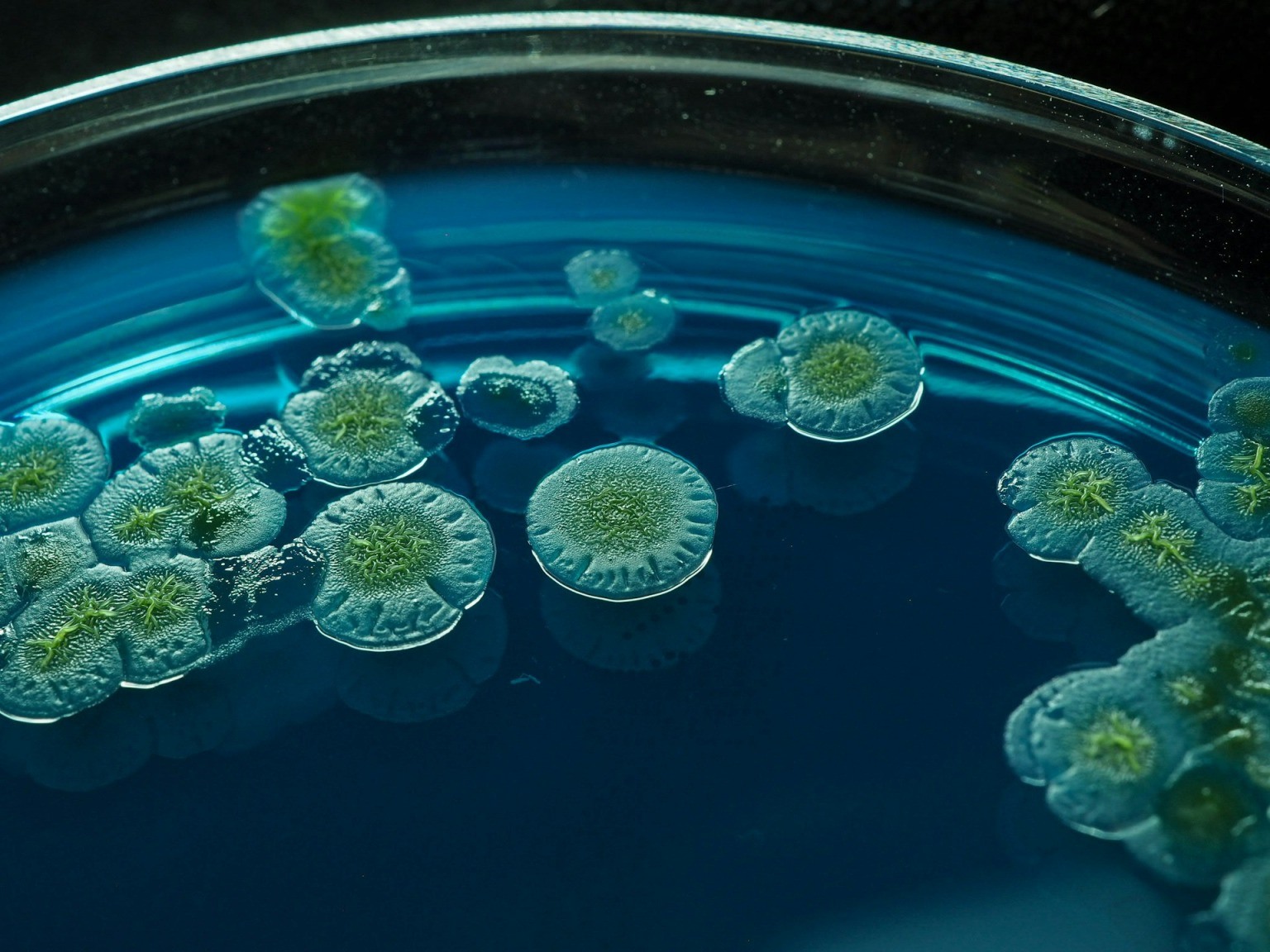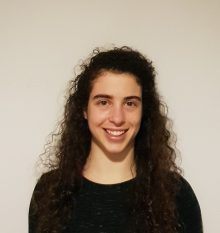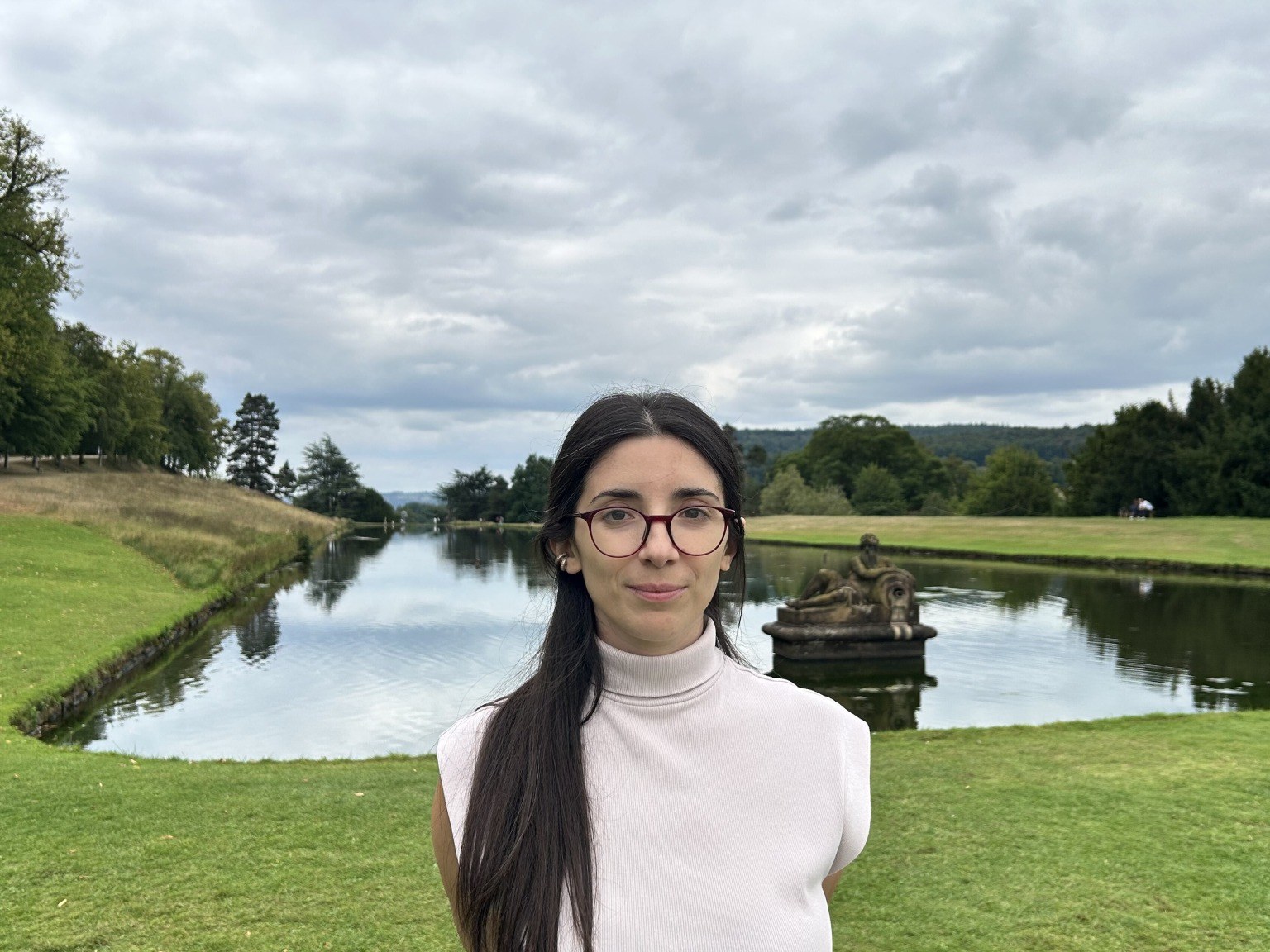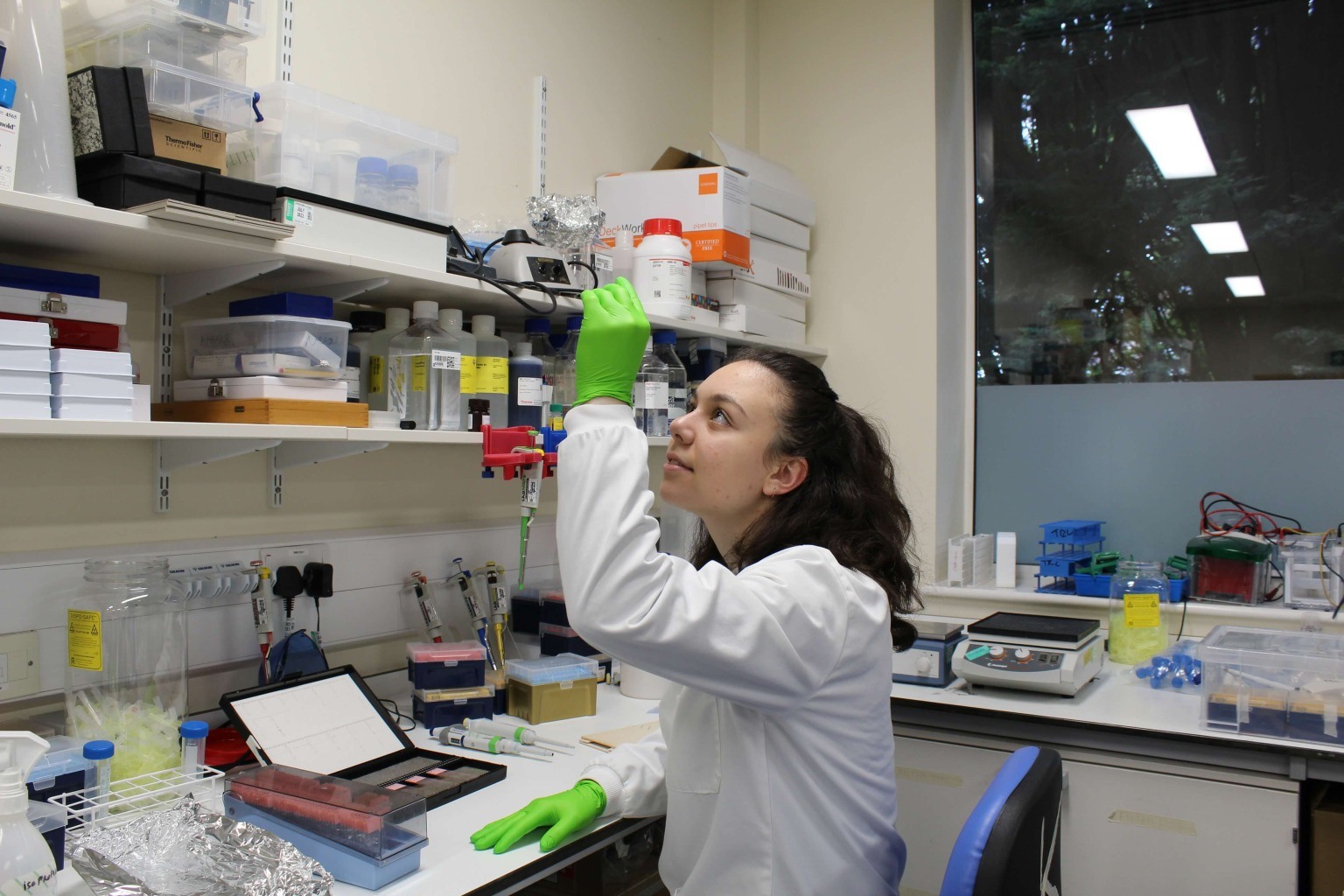
Exploring the invisible: Dr. Ariadni Boziki simulates the molecular world
Chrysovalantou Kalaitzidou

Magazine / Interviews , Science
She got her bachelor’s degree in Molecular and Cell Biology from the University of Glasgow, where she also integrated her master’s degree from the University of Tampere as part of a student exchange program. During her PhD in the Department of Hematology and Cancer Biology - University of Edinburgh, she studied the function of the metabolic enzyme fumarate hydratase (FH) in Acute Myeloid Leukemia (AML). Afterwards, she worked as a postdoctoral researcher at the City of Hope in California. There she studied the causes of relapse in patients with B-cell Acute Lymphoblastic Leukemia (B-ALL) in order to identify potentially novel druggable targets. After that, she moved back to the UK to continue her postdoctoral research at University College London, focusing this time on the improvement of the CAR-T cell manufacturing process, a technology that is used for cancer therapy.
Theano talked in detail to Greek Women in STEM about her research and career development.
At the first steps of your career what motivated you to work in research and especially with cancer?

From a very young age, I was passionate about Biological sciences and specifically about research. I even made my own lab and I was wandering around the neighborhood looking for materials that I could use to start my “experiments”. During my university studies, I found the biological process of cancer very intriguing and had (and still have) many unanswered questions. In the last year of my studies, I was still not sure which type of cancer I wanted to do research in. However, I did a summer internship in a lab where they studied the metabolic properties of Leukemia and I found it very interesting. I then decided that I wanted to work in this field and therefore I started my PhD in the same lab.
In your last academic job and in your current position in the industry you are working with the technology of T cells as a therapeutic tool. Can you talk to us about this technology and how you were inspired to work on it?
Our immune system is an exquisite surveillance system protecting our bodies against foreign substances and cancer. Typically, the immune system will identify cancer cells that arise and will destroy them. However, due to a multitude of reasons, cancer cells can escape immune surveillance and develop without limitations.
Immunotherapies, and specifically the therapies with T-cells, have brought new therapeutic ways to fight cancer. In many cases, T-immunotherapies have successfully treated cancer patients who had already exhausted all other therapeutic avenues. There are different kinds of T-immunotherapies such as CAR T-cells (chimeric antigen receptor T-cells) and TILs (tumour infiltrating lymphocytes). In both therapies, the T-cells are extracted from the patient. In the case of CAR-T, the cells are genetically modified, while TILs naturally recognize cancer-specific proteins on the surface of cancer cells. In both cases, the cells are cultured extensively in the lab and are then re-introduced into the patient where they will recognise and kill cancer cells.
The reason that I am so interested in T-immunotherapies is that they are highly personalised and can on many occasions specifically target cancer cells while leaving healthy cells untouched. I believe that personalised therapies could be the key to a successful fight against cancer.
What are the advantages and the disadvantages of T-cell technology as a cancer therapy?
The most important advantage of T-immunotherapies is that some cancer patients have been able to achieve durable remissions when they have not been able to do so with any other therapy. More importantly, the fact that these therapies are a form of “living drug” means they can survive in the patient’s body for years, thus offering long-lasting protection against cancer. One of the most important disadvantages is the time needed for their production, as some T-immunotherapies require up to 12 weeks for their production. Lastly, these therapies can be very expensive. For instance, CAR-T therapy has a cost of approximately £280,000 per patient.
What are you working on in Achilles Therapeutics?
Achilles Therapeutics is a biopharmaceutical company developing novel cancer immunotherapies for advanced lung cancer and metastatic or recurrent melanoma. I work in the R&D (Research & Development) department.
In your daily job, what excites you and challenges you the most?
The thing that excites me the most in my job is that our research has a direct impact on cancer patients. However, the environment within a start-up company can be very stressful.
Even if you don’t personally know somebody, you can send them a message on LinkedIn and ask them to connect. Networking is crucial!
Why did you decide to leave academia and accept a position in the industry?
The most important reason is that academic research cannot easily have a direct impact on patients, while clinical-stage companies are able to directly impact them.
According to your experience, what are the differences in academic and industry research?
In my opinion, the biggest difference is that in industry every company has one specific goal, and everyone is working together to achieve that common goal. In an academic setting, researchers typically have their individual research plans and work in isolation.
Would you like to go back to academia at some point in your career?
No, I do not think I would go back to academia.
There is a perception that it is hard to make a transition from academia to industry, especially for someone that has worked for many years in academia and has specialised in a specific scientific topic. Since you have made this transition, is it true that it is difficult to make this change on your career path?
I also had this perception for a long time, but I don’t think this is accurate. There are differences in the way of approaching a job in academia and in industry but ultimately what matters is the professional experience. I would like to emphasise that many of my colleagues at Achilles have made the transition from academia to industry.
What would you advise someone with a PhD that wants to find a position in the industry?
Firstly, I would like to advise anyone who is looking to make this transition to find information online on how to create a CV for industry positions. There are important differences when it comes to academic and industry CVs that could cost somebody the industry positions they want. Furthermore, find the companies that you are interested in and regularly check their websites and LinkedIn for new positions. Moreover, you can find people working at the companies of your interest and connect with them. Even if you don’t personally know somebody you can send them a message on LinkedIn and ask them to connect. Networking is crucial as they can provide you with information about the company and they may also be aware of available positions. Otherwise, you can contact the HR department of a company (via LinkedIn or email) briefly introducing yourself and attaching your CV. Finally, apply for a position even if you think you don’t have all the necessary experience as the HR department may be aware of other positions that you could be suitable for.
Regarding your volunteering in R.E.A.L. Science, can you tell us about your contribution and the aim of the team?
R.E.A.L Science is a platform for school scientific professional orientation. Through R.E.A.L Science and technology, we give students even from remote areas the opportunity to learn from specialised scientists about the field that are interested in, and the possibility to ask their questions and get advice for their future career steps. Finally, we aim to bring down gender stereotypes in science.
In R.E.A.L Science, I am one of the many scientists-volunteers. During my school years, but also in my first years at university, I had many unanswered questions concerning the scientific field of Biology but I did not know how to access the information I needed. I am very happy that as volunteers we can offer our knowledge, give advice, and answer questions regarding the career path of younger generations.
Follow Theano on LinkedIn.

Chrysovalantou Kalaitzidou

Thaleia-Dimitra Doudali

Danai Korre
